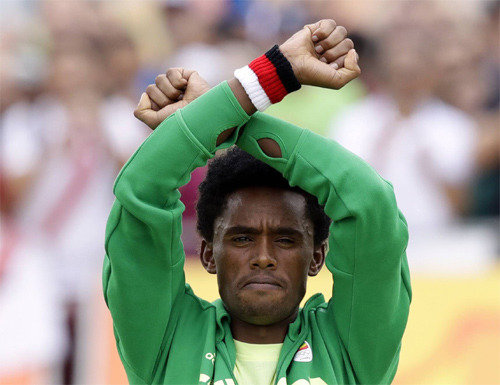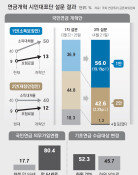Ethiopian marathoner on the brink of losing silver medal
Ethiopian marathoner on the brink of losing silver medal
Posted August. 24, 2016 07:29,
Updated August. 24, 2016 07:35

Lilesa held his arms over his head, wrists crossed, as he finished second at the Rio Olympic marathon on Sunday, and also posed the same gesture at the victory stand, in a gesture of support for members of his Oromo tribe who have been protesting at government plans to reallocate farmland. "The Ethiopian government is killing my people so I stand with all protests anywhere as Oromo is my tribe. I raised my hands to support with the Oromo protest,’’ Lilesa said, adding he supports peaceful protests of the Oromo people.
Oromia is his home region in Ethiopia where one third of the country's population resides and anti-government sentiment is strong. The Ethiopian government has killed hundreds of Oroma people while suppressing the protests. "Oromo people protest what is right, for peace, for a place," Lilesa said, adding that he feared he would face consequences for the gesture when he returned home.
The problem is that the International Olympic Committee bans athletes from delivering political, religious and commercial messages during Olympics. African-American athletes Tommie Smith and John Carlos stood wearing black socks without shoes during their medal ceremony at the 1968 Summer Olympics in Mexico City. When the U.S. national anthem was flowing out, they wore a black scarf bowing their heads and raising one hand high. The IOC regarded this as political action and took away medals from them.
After winning bronze medal at the 2012 London Olympics, Korean soccer player Park Jong-woo held a placard with "Dokdo is our Land" message. The delivery of the medal was reserved and he was probed by the IOC. Park got a warning but kept his medal.
이진구 기자sys1201@donga.com







